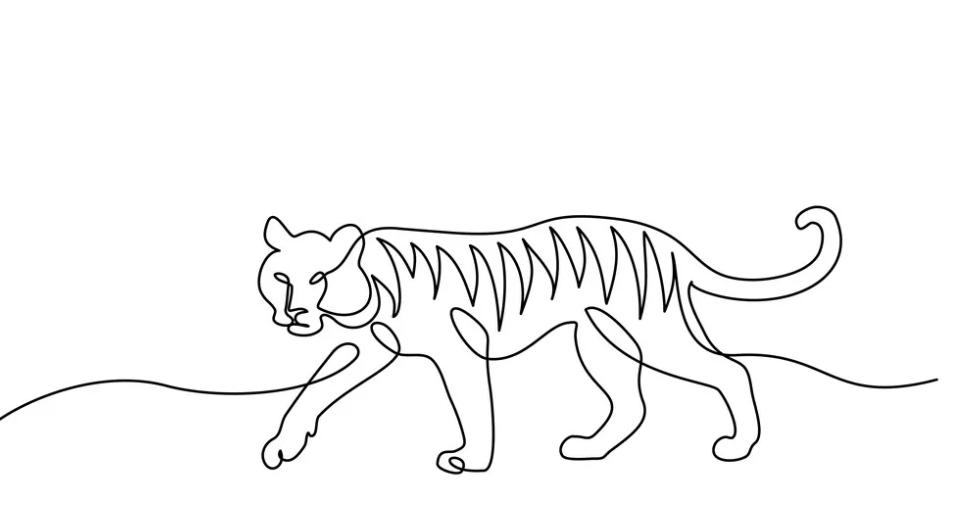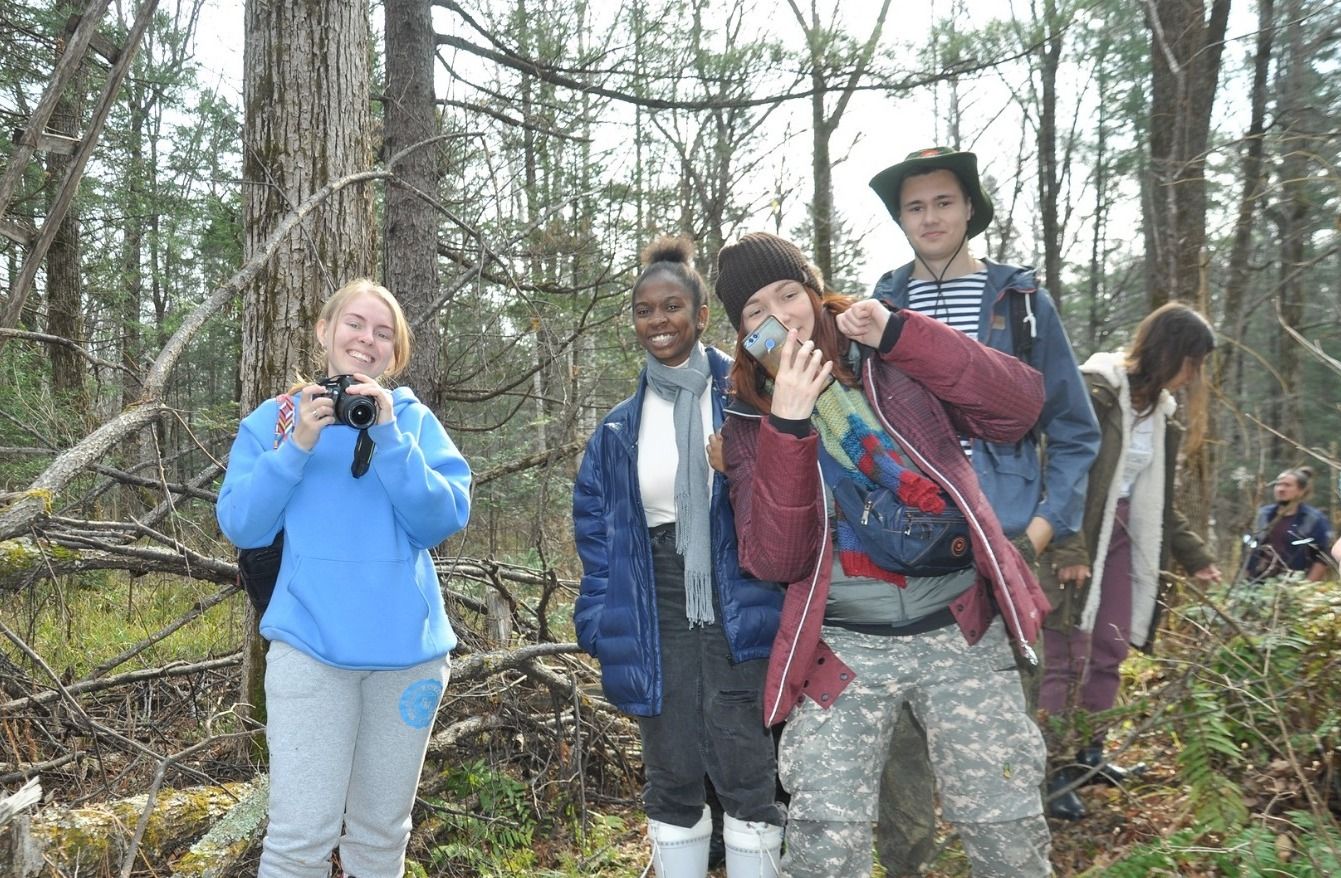Экспедиция на английском языке 'По следам тигров'
Как как насчет трехдневного путешествие в Тайгу с командой Speak! English? Культурная программа в диких условиях с возможностью бесплатного участия.!

В Октябре 2022г. Группа студентов нашего международного техникума, вместе с гостьей из Замбии, побывали в трехдневном путешествии в Тайгу! Это был наш первый опыт организации столь необычного и продуктивного досуга. Языковая практика, волонтерство, знакомство с реликтовыми растения, расширение культурного кругозора, исторический экскурс, знакомство с биологом, охотоведом и создателем частного лесоохотничьего хозяйства «Дурминское» Александром Баталовым.
Отзывы участников октябрьской экспедиции:
Дорогие Дурминчане, спасибо большое за такие классные выходные 👏 было очень круто не просто отдыхать, но и приносить пользу этому месту. Мне кажется совместный труд нас очень сплотил🤜🤛 буду рада новым совместным поездкам или встречам.
Это приключение в самое ❤️ Евгения Залевская
Братцы, всех благодарю за эту поездку!
Отдельное спасибо организации, разумеется, все было, как говорится, четка да гладко!
Очень хорошая компания собралась, замечательно провели время!
Был рад познакомиться со всеми😄P.S. игроки в "Сопротивление" допоздна - ставлю персональный лайк😘 Олег
Thank you for the last minute invitation.❤️🙏I’m really glad I went there and I honestly had an amazing experience.
Big thanks to everyone else! You were all super friendly and nice to me.❤️The weekend was well spent. Tapiwa Mwansa
Присоединяюсь. Спасибо всем за компанию и активное участие. Меня очень порадовало, что все были как одна семья)) Дарья Орлова
Как нас занесло в Тайгу?
История сотрудничества Международного Техникума и Дурминского Лесоохотничьего хозяйства началось в 2019 году, когда журналисты из BBC, вместе с популярным ведущим Саймон Рибон впервые приехали на Дальний Восток для съемки документального фильма про Амурского Тигра. Конечно без переводчиков было не обойтись и 3е педагогов школы* отважно отправились в Тайгу в средине зимы, для установки фото ловушек и первого знакомства с Лесоохотничьем хозяйством.

Дальневосточная Тайга не может оставить равнодушным. Вернувшись наши преподаватели поделились восторженными отзывами как о самом хозяйстве, так и о самом создателе Александре Сергеевиче. Однако, не все так просто, поддерживать хозяйсво, находящееся в дали от цивилизации своими силами не легко. Так на помощь отправилась первая небольшая делегация от S!E. Ребята помогли почистить территорию, привести в порядок домики и избавится от сухостоя.
Далее случалась программа S!E city, в рамках которой ребята не только учили английский и развивали свои бизнесы, но и занимались общественно - полезной работой. Сама масштабная поездка в Дурмниское лесоохотничье хозяйство прошла в середине Октября. Всего в поездке пряло участие 17 человек, включая гостью из Замбии Тапиву Грэйс. Так как все участники программы на тот момент уже полгода занимались английским, проблем с коммуникацией не возникло ни у одной из сторон! Даже в настольные игры ребята играли на Английском.
Когда следующая экспедиция в Тайгу?
Как только наберётся следующая группа отважных таежных исследователей, готовых не только провести несколько дней в дали от цивилизации, попрактиковать английски и поработать в сласть 😉
Заполняйте форму записи 👇 будем рады новым лицам
Далее репортаж о первой групповой поездке в Дурмин на английском языке
"Tracking the tiger" - an ecological, educational and cultural two-day trip with the major goal of community service (including cleaning up the territory of the nature reserve).
Over the weekend of the 14th-16th of October, we had one of the most influential field trips of this program. 17 program participants were involved in an expedition to the Ussuri Taiga, to fulfil community service duties, investigate local ecotourism business opportunities in the region and explore wildlife under the guidance of the internationally recognized researcher, naturalist, and director of Durminskoe Nature Reserve, Alexander Batalov.
Chronology
The entire first day of the trip was devoted to logistics, due to the remoteness of the location and bad road conditions. The trip took 6 hours. The road was so bad that we had to leave the cars behind because they got stuck in the mud. That experience brought everyone together, because each group member has contributed to the trip by either helping to pull out the car, or packing and reassembling the equipment and provisions. Having overcome these challenges, by the time the group arrived at the final destination all members were brimming with enthusiasm. That experience definitely helped us understand the importance of teamwork. There were no complaints on that day, it only strengthened the team spirit and let them come to the realisation that we are going to an authentic place that is not easily accessible by any means of transportation, and yet we made it.
Our group was the largest group to be hosted by the reserve in 27 years. All participants had to take turns in dishwashing using the only source of water (underground spring) that was a unique experience for almost everyone in the program.
On the second day, everybody woke up early to get some time before breakfast and explore the reserve a little by themselves. Then the director of the reserve, Alexander Batalov, gathered everyone for a lecture and a tour around his establishment that was settled in 1992. Participants learned from him that regardless of the remoteness of the reserve, tourists from all over the world used to book their stay in advance, mentioning that this business model can be quite profitable (“even more profitable than the fur trade industry in the region”).
Then the group was taken to see two specific trees in the area, which are more than 200 years old (all safety precautions were taken). Along the way, the group helped to fix the road and install a few camera traps that are used to monitor the tiger population.
The second part of the day was devoted to cleaning the territory and premises. Due to the remoteness of this wilderness region, and sharp decrease in the amount of foreign tourists, the reserve facilities have been slowly degrading. The help from our group was much appreciated (check our video!).
Here is a list of things what was done over the two-day period:
+4 cabins were cleared-out (we got rid of old stuff, washed all windows, moped the floor, fixed some furniture)
+ Kitchen and common places were cleared out (sorted kitchen supplies).
+ Ramshackle structures were carefully disassembled.
+ The territory was cleared of dead-wood.
+ Trees were trimmed.
The last day was also devoted to cabin cleaning and departure preparation. Participants have prepared some presents for the rest of the Advance group, who for some reasons couldn't be part of this trip (a lot of pine cones were gathered and brought back to the city:). The road back went smoothly, yet again it took us about 6 hours.
During the reflection session (done with the help of a feedback form), participants admitted that volunteering was the most memorable part of the trip. Being involved and making real positive contributions made this experience invaluable for the whole group. Also, some of the students got inspired by the idea of making Durimin reserve a tourism destination not only for foreigners but for the local audience.
One curious fact: as one of the Advance program participants cancelled at the last moment, we decided to take one of our school’s intern teachers from Zambia with us. As she is not a confident Russian language user, the entire team had to communicate in English to make sure that she knew what was happening all the time. As a result, even though most of the group were Russian, the presence of a native English speaker made the whole trip 70% in English. That was very rewarding because the guys realised that they can successfully use English outside the classroom. That definitely boosted their confidence in communicating in English.